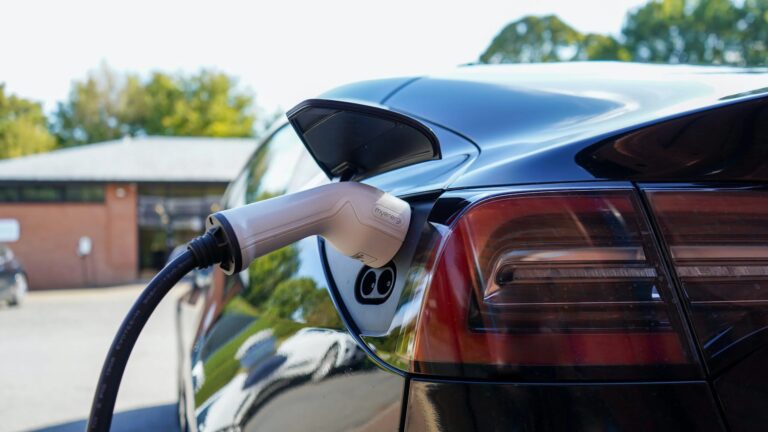🎧 Listen to This Article
As discussions continue regarding the future of electric vehicle tax incentives, automakers are proactively engaging with federal lawmakers for a gradual reduction rather than an immediate cessation.
According to a recent report from Bloomberg, companies like Ford and General Motors, along with several industry lobbying groups, are urging the Trump Administration and Republican Congressional members to retain essential incentives from the Biden Administration’s Inflation Reduction Act (IRA) for as long as possible.
The IRA, which was designed to bolster the electric vehicle market through various manufacturing incentives and tax credits, has the potential to double EV sales by 2030 compared to earlier forecasts. However, reports suggest that the Trump Administration is focused on eliminating the federal EV tax credit—a move backed by influential figures such as Elon Musk and Tesla.
In response to the proposed changes, one strategy under consideration includes instituting a three-year credit sunset. This approach would allow manufacturers extra time to adjust to the expected loss of incentives and could ease the financial impact on consumers purchasing new EVs.
Additionally, automakers are advocating for the preservation of the so-called leasing loophole. This provision allows manufacturers with captive financing companies to access a $7,500 tax credit for leased vehicles, which could then be passed on to the consumer. This loophole has contributed to a significant increase in EV leasing, particularly in the luxury segment, even for vehicles produced outside the United States.
However, this argument may face challenges in Congress, where the IRA’s EV tax credit barely passed during its initial attempt. Should these efforts prove unsuccessful, it’s worth noting that state-level incentives may cushion the blow of federal cuts.
For instance, California has announced plans to offer its residents $7,500 rebates should the federal tax credit be eliminated. However, the state is reportedly seeking to exclude Tesla in a bid to encourage competition by directing incentives toward brands with a smaller market share.
In summary, the electric vehicle landscape is at a pivotal juncture as automakers work diligently to secure their interests in the face of potential policy changes. The outcomes of these lobbying efforts could significantly impact the accessibility and affordability of electric vehicles for consumers in the coming years.
For further details, clarification, contributions or any concerns regarding this article, please feel free to reach out to us at editorial@tax.news. We value your feedback and are committed to providing accurate and timely information. Please note that all inquiries will be handled in accordance with our privacy policy



